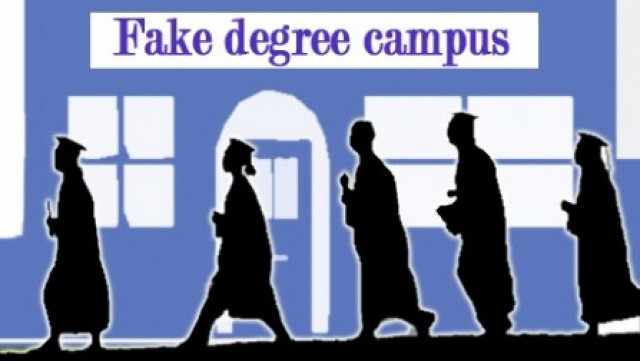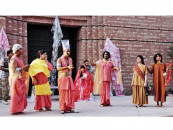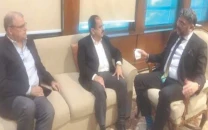Will ‘cheating’ lawmakers be punished?
So far 47 lawmakers have made their way into the hall of shame.

Ironically, for some most articulate cabinet ministers, it’s not an issue. It’s rather a part of a conspiracy to destabilise the PPP-led government. But they will not go down without a fight. There have been hushed calls for mid-term elections from the opposition in the wake of growing number of lawmakers with forged degrees. “No way,” retort the prime minister and his deputies. They say the government will complete its constitutional term come what may. The HEC, the body tasked to scrutinise the degrees of lawmakers, has reportedly been under pressure from government officials, especially in Sindh, the powerhouse of the PPP. And its chief, Javed Leghari, and his family are allegedly being coerced and harassed. His bureaucrat brother, Farooq Leghari, was recently picked up and framed in more than two-year old graft cases. Abid Sher Ali, the chairman of the National Assembly standing committee on education, has openly blamed the Sindh home minister for the troubles of the Leghari family. The national human rights watchdog, HRCP, has also expressed concerns over the “strong-arm tactics” of the democratic government. “… the raid on the HEC chairman’s house and arrest of his servants reek of vengeful tactics…,” it said in a recent statement. The Leghari family’s troubles eased, at least for now, after a “warning” from PML-N supremo Nawaz Sharif to the government. The prime minister moved quickly to soothe frayed tempters. He called up Sharif in London to tell him that the Sindh chief minister has been asked to “avoid any victimisation” of the Leghari family.
Not only that. Gilani also met the HEC chairman on July 19 and assured him of “full support” in the degrees’ verification process. But Javed Leghari didn’t seem satisfied with this assurance. And the next day he sought an audience with President Zardari to convey his concerns. Few details of this “one-on-one” meeting transpired, but Leghari reportedly told the president that it would become difficult for him to work for the commission under the prevailing circumstances.
Frustrated by the multiplying numbers of lawmakers, with forged degrees and their imminent disqualification, the government is seeking to delay the degrees verification process. In the July 19 meeting Gilani reportedly told the HEC chief to involve the education ministry in the degrees verification process instead of doing the Herculean task all by himself. The HEC, citing a 2002 presidential ordinance, says it’s answerable only to the prime minister and not the education minister. According to the ordinance, the HEC is the only institution in the country which can verify educational certificates.
Nevertheless, the government has reportedly decided to form a commission to verify degrees. Education Minister Sardar Assef Ali will head the proposed commission, also having representation from the ministry of Dr Babar Awan, whose own doctorate is in question. The commission will review the report, to be compiled by the HEC, and send it to the law ministry before it’s submitted to the National Assembly standing committee on education. Meanwhile the Election Commission of Pakistan (ECP) has made things more complicated. The ECP secretary, Ishtiaq Ahmad Khan, says it is his commission’s and not the HEC’s job to scrutinise the degrees of lawmakers. Perhaps, Khan is not aware of the 2002 ordinance. The ECP has also formed a supervisory committee to complete the process “without fear or favour.” Khan says legislators, with forged degrees will be tried in district and sessions courts. But they will have the right to challenge the rulings in the superior courts. This lengthy process may take months, if not years. And in the meantime, new problems might take the spotlight off the forged degrees issue.
The opposition PML-N tops the list of forged degree-holding lawmakers, followed by the ruling PPP. Both have said they will not field cheats in the next elections. Sounds good. But what about the fraudlent degree holders in the incumbent parliament? Will they be punished for their forgery? Judging from the current scenario, it doesn’t seem happening anytime soon. Why? Because it has yet not been established who will deal with the matter – the HEC, the ECP, the education ministry or the law ministry.
Published in The Express Tribune, July 26th, 2010.



















COMMENTS
Comments are moderated and generally will be posted if they are on-topic and not abusive.
For more information, please see our Comments FAQ